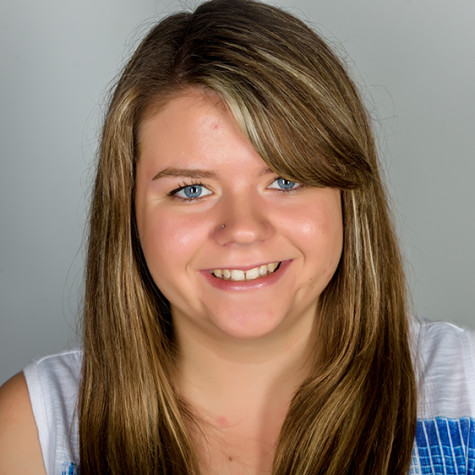Reyna Grande is an award-winning novelist and memoirist, but she hasn’t always been so successful. Born in Mexico, her father went to the U.S. to find work when she was only 2 years old. Her mom left two years later and she was left with an abusive grandfather until she was 10, when her parents brought her to the U.S. as an undocumented immigrant. She later became the first in her family to graduate from college and now not only writes but also speaks across the country.
Grande will be visiting Santa Rosa Junior College for Women’s History Month.
Extended Opportunity Programs & Services counselor Rhonda Findling is coordinating nine Women’s History Month events at SRJC focused on Latina women. “In honor of the JC becoming a Latina serving institution,” Findling said. “I’ve been coordinating Women’s History Month for a number of years and I’ve never had this kind of positive response.”
Grande will be at SRJC for two days doing two public and two private events. The first public event is called “Crossing Borders: Reyna Grande on Immigration and the ‘American Dream.’” She will tell her personal story at noon March 3 in Newman Auditorium with a book-signing event to follow.
At Grande’s next event, she will tell more about her story, answering questions from immigrant students and families and talking about immigrant’s sacrifices, challenges and how they can support their children in an event all in Spanish called “La experiencia de inmigrantes: Lo que los padres sacrifican para mejorar el futuro de sus hijas/os.” The event will take place at 7 p.m. March 3 in Newman Auditorium.
Grande will also have two private meetings at the Santa Rosa Campus and the Petaluma campus with the SRJC Puente class. The Puente program is a year-long program teaching and mentoring Hispanics and Latinos in critical thinking, reading and writing through English classes. Casa Grande High School in Petaluma will also be attending the Petaluma meeting because they were given 100 free copies of her memoir “The Distance Between Us” through the Associated Students. Puente classes have all read her book too.
The Mariachi Femenil Orgullo Mexicano is a nine-women Mariachi group that will perform at 7 p.m. March 8in Newman Auditorium. This is their third time performing at SRJC. “The last two times we brought them here, the room was overflowing,” Findling said. Ninfa Iglesias is a member of the band and was raised in Santa Rosa and earned her Associates Degree at SRJC in 2004.
There will be a film screening of “Rape in the Fields,” a film about immigrant women who work in fields and packing plants who often get sexually assaulted by male bosses, at 1:30 p.m. on March 31 in Doyle Library, room 4245. “It is a story that really needs to be told, not many people know what’s happening,” Findling said.
SRJC history instructor Laura Larque will give “The Aztec Concept of Duality & the Role of Women” lecture about Aztecs and the role of women in the society at 1:30 p.m. March 12 in the SRJC Museum.
The issue of the sexualizing of Latinas in shows and movies these days and other issues like colorism, racism and sexism in the media will be talked about at 1:15 p.m. March 26 in the Bertolini Center for Student Leadership in the event “Dangerous Curves: The Sexualization of Latinas in the Media.” “It is another story that needs to be told; we don’t even think about it,” Findling said.
“Hablas Latina” is a panel discussion about being an effective Latina leader featuring many prominent Latina leaders, activists and educators. It will be at noon on March 27 in the Bertolini Student Activity Center.
The Petaluma campus will hold two events. SRJC history instructor Allison Baker will focus on the Chicana feminist movement in the history of Latina culture in the U.S. in “Chicana History and the Feminist Movement” at 9 a.m. March 12 and 10:30 a.m. March 13 in the Call Building, room 657.
Instructor Alice Roberti’s women’s history class will present their oral history projects of Latinas from Sonoma and Marin counties in “Latina Oral History Projects” at noon March 25 and 27 in the Call Building, room 656.
“Everything is free and open to the public,” Findling said. “We want all students to come, to honor all our Latina students.”



